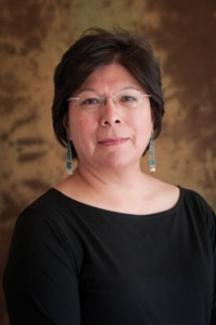As Indigenous people, we recognize the spiritual significance of the Kogi people and their call to honor and protect Mother Earth through our own spiritual and cultural traditions. “From the heart of the earth” are powerful words imbued with deep spiritual understanding in the Kogi language and worldview. The power of these words encompasses all existence, all relations, and when spoken from the “guardians of the heart of the world” they remind us of who we are and our responsibilities as human beings in a deeply profound way. We are respectful and grateful for the Kogi Mamos who offer meditation, prayer, songs, and ritual offerings that protect and nurture all creation on our collective behalf.
Several of the articles highlighted here reflect the importance of stories and acts of remembering our sacred connections and responsibilities. Atossa Soltani and Evelyn Arce reflect on their visit to the Kogi people; Leonard Little Finger tells about his ancestors’ sacred journeys to a site where “Mother Earth breathes” and the ritual ceremonial preparation needed; Kaimana Barcase tells of the voyaging journey of the Hawaiian Hokule’a’ as an understanding of the “direct connection as humans to the health of the land and the sea” and the ritual preparation needed. We are reminded that our traditional languages embody spiritual teachings and complex meanings evolving since time immemorial and bring to life the power of words. Yet, around the world we struggle to sustain our languages, our cultural traditions, and our sacred lands. Our “language healers” are working to revitalize and sustain traditional Indigenous languages that are disappearing at an unprecedented rate. As Richard Grounds says, “Our heritage languages, our original languages are probably the most critical markers of the health of our communities in terms of our cultural wellbeing. And that relates to understanding who we are, that relates to understanding what our place is in the world…the fullness of that understanding comes with language.”
Our struggles to protect sacred lands from development and resource extraction are immense, yet we are resilient and strong in the fight. In this issue of the CSQ alone we can see how the struggles for cultural survival and Indigenous rights span the globe from Tibet to East Turkestan to Colombia to the United States, Hawai’i, Guatemala, Peru, and many, many more places. Across the globe we see the next generations beginning to lead us forward, and we encourage and support them. As we connect our present to the future, it is our responsibility to assure our children have a world to inherit. So as we increasingly call attention to climate change, we must make the connections and heed what the Kogi and other spiritual leaders are telling us. It is not about science, it is not about economic development, it is not about declarations and policies; in the Indigenous world, at the heart, it is about what it means to be a human being connected and in the right relationship to all livings things animate and inanimate.
In Solidarity,
Suzanne Benally
Executive Director
Cultural Survival

